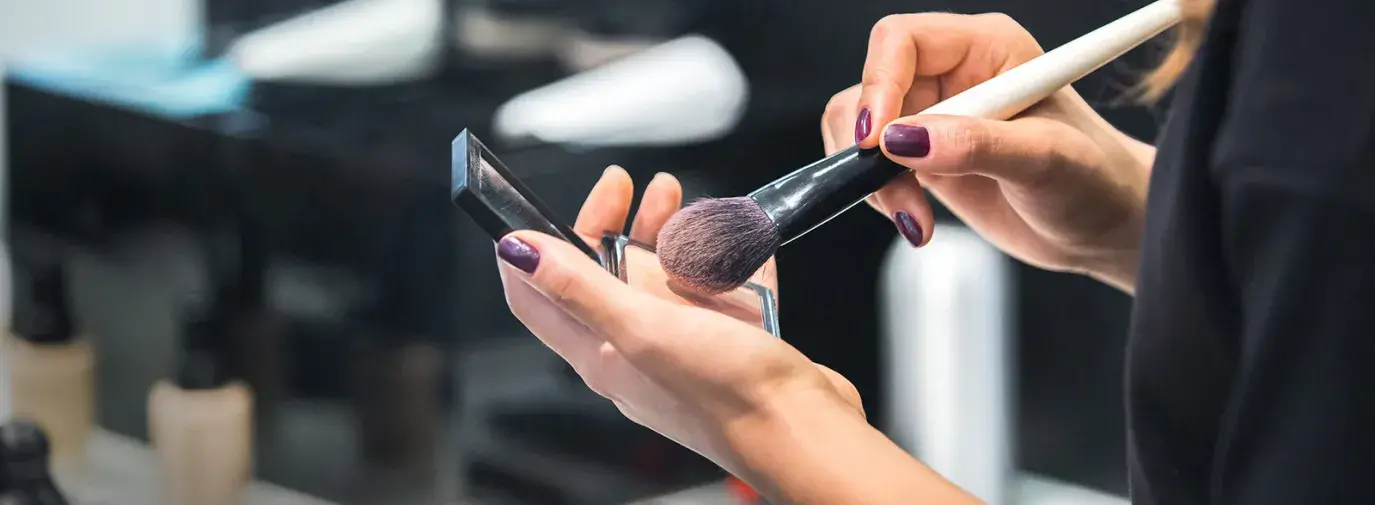
Suzanne Anich of Minneapolis, MN, has a morning routine similar to that of many women. She shampoos and conditions her hair with products that contain “natural ingredients,” according to the labels. She brushes her teeth, then washes her face with an upscale facial wash with the word “purity” emblazoned across the jar. Then, she applies a moisturizer and what she calls a “low-maintenance” selection of makeup.
Suzanne was surprised to find out that nearly all of the personal care products she uses on her face and body contain ingredients suspected of causing cancer; potential neuro-, liver-, and immunotoxins; and suspected hormone disruptors that could cause birth defects in any children she might havein the future.
Fortunately, it’s easier than ever to find products that won’t endanger your health—and companies that do care about their customers’ well-being. Here’s what you need to know about the personal care products you may be using and what your alternatives are.
Are Cosmetics Regulated or Not?
Like Suzanne, many consumers may be surprised to learn that the US federal government doesn’t require health studies or pre-market testing on personal care products. Manufacturers are free to put just about anything they want into cosmetics—a far-reaching category used by the US Food and Drug Administration (FDA) to include everything from make-up and deodorant to lotions and mouthwashes.
Instead, the safety (or not) of the ingredients in these products is looked into almost exclusively by a manufacturer-controlled safety committee called the Cosmetic Ingredient Review (CIR) panel. Consequently, “89% of 10,500 ingredients used in personal care products have not been evaluated for safety by the CIR, the FDA, nor any other publicly accountable institution,” says the nonprofit Environmental Working Group (EWG). “The absence of government oversight for this $35 billion industry leads to companies routinely marketing products with ingredients that are poorly studied, not studied at all, or worse, known to pose potentially serious health risks.”
Without government surveys into chemical use in cosmetics, recent data is scarce, but EWG found that black women may be particularly at risk, with a 2016 analysis showing that less than 25% of products marketed for black women have low levels of potentially hazardous chemicals.
Also of particular concern are the inclusion of phthalates—a group of industrial chemicals linked to birth defects that are used in many cosmetic products, from nail polish to deodorant. Phthalates are not listed as ingredients on product labels; they can only be detected through laboratory analysis. Two of the most toxic phthalates, DBP and DEHP, have been banned from cosmetics products sold in the European Union (EU). Phthalates are regulated by the Consumer Product Safety Commission and the FDA and states like California, Vermont, and Washington have their own restrictions.
Another class of chemicals that’s gotten some press recently is parabens, short for “para hydroxybenzoate.” These preservatives are widely used in cosmetics, particularly nail polish. Recent studies have shown parabens in breast tissue, though more testing is needed to determine adverse health affects.
Though there isn’t always definitive evidence that a given chemical can cause adverse health affects, the fact that so few have been studied for safety is of significant concern. Plus, there’s the effect over time of all these chemicals we’re applying to our bodies to consider. The average person’s morning routine puts him/her into contact with over 100 chemicals before breakfast, according to Aubrey Hampton and Susan Hussey, founder and vice-president of marketing, respectively, of Aubrey Organics. The cumulative effect of all of the chemicals in these products can add up over time, and no one truly knows what the results are.
Is There Change on the Horizon for Cosmetics?
There are signs of hope that the cosmetics industry could be poised for a major overhaul, however:
- Major Companies Phase Out Phthalates: Cosmetics companies L’Oréal, Revlon, and Unilever have voluntarily removed phthalates DBP and DEHP from products sold in the US. Whole Foods and Target have removed or restricted personal care products with phthalates in their stores.
- California Bans PFAS "forever chemicals": Several states are making efforts to eliminate toxic chemicals from cosmetics. In 2022, California banned PFAS "forever chemicals" from cosmetics sold in California.
- The Campaign for Safe Cosmetics: The CSC is calling on all cosmetics companies to phase out toxic chemicals. “Consumers have real power they’re not exercising,” Janet Nudelman of the CSC told Dragonfly Media. “We need to let cosmetics companies know we’re not going to buy their products unless they make a strong commitment to safety.”
How to Avoid Harmful Cosmetics
Here’s how to find the safest personal care products for you and your family:
- Be Suspicious of Labels: Though words like “natural” or “hypoallergenic” look reassuring, on some products, they’re basically meaningless. The FDA has no control over these labels. Products labeled “natural,” for example, may contain some natural ingredients, but they may also include synthetic dyes and fragrances. “Hypoallergenic” merely means that the most common irritants are left out, but other potentially problematic chemicals may still be in the mix. “Fragrance-free” means a product has no perceptible odor—synthetic ingredients may still be added to mask odors. The FDA notes, however, that if "fragrance" is not included on an ingredient list, phthalates are not included.
- Scrutinize Ingredients: The EWG's Skin Deep online database makes it easier than ever to check the safety of over 7,500 personal care products, from OPI nail polish to Aveda shampoo to Johnson’s Baby Oil. Some products even carry the EWG Skin Deep label on their packaging to let you know its safe when shopping in-store.
- Go Organic: Cosmetics that contain certified organic ingredients generally contain mainly natural ingredients, including those that have been grown without the use of toxic pesticides. Unfortunately, organic doesn’t necessarily mean problem-free. Even organic companies need to keep their products from rotting away on store shelves, in warehouses, and in your medicine cabinet. Some may turn to synthetic chemicals to keep their products fresh and useful. Be sure to check the ingredients list on your favorite organic products.
To find safe cosmetics and personal care products, visit EWG's Skin Deep Database and Green America's Green Pages Online.
Updated December 2022







